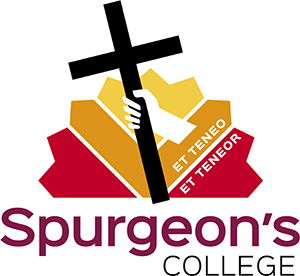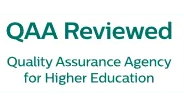The MA in Digital Theology is the first degree of its kind across the world, offering a unique opportunity for theological reflection on digitality and its implications for the contemporary church. It prepares women and men for ministry and mission in a digital age covering topics such as:
-
- Theological thought in digital culture
-
- Theology of technology
-
- Reading the Bible digitally
-
- Theological anthropology & transhumanism
-
- Online worship & spiritual formation
-
- Digital evangelism & mission
-
- Living ethically amidst digital tech
-
- Hybrid church in a post-pandemic world
The programme can be taken on a two year full time basis, or part-time over four years. The units will be taught through teaching blocks at our historical campus in London or online, combined with online seminars.
The programme is now offered in partnership with the Centre for Digital Theology and Premier Christian Media.
What the students say:
“The digital theology modules have been the most significant academic contribution to my training so far. With an undergraduate degree in theology and fourteen years’ experience in Christian ministry, I was struck by the practical and theological importance that these modules have offered.” Phil Macaulay
“This is the course my soul has been longing for.” Fiona Fidgin
“The professors on the programme skilfully lead us on an insightful journey examining a wide range of topics around Christianity and digital culture. The interactive teaching approach also allows me to contribute with my Asian context to the discussion.” Alex Yeung
“My MADT work can feed directly back into my denomination’s thinking and allow us a theological mindfulness as we grow online.” Ben Preston
Frequenty asked questions
When can I start?
Students can join the programme in September each year.
Can I study part-time?
Yes, the programme can be taken over a maximum of four years.
What are the entrance requirements?
The normal entrance requirement is a degree in Theology or Religious Studies with normally at least a good second class honours degree (55% or above). Graduates in other disciplines and with experience of Theology or Religious Studies to at least Certificate level (with marks at merit or higher) may also be admitted to the programme. All suitable candidates will be invited for an interview.
Do I need a degree in theology to apply?
Not necessarily. Students who have a degree in another discipline may be admitted on the programme with the agreement of the admissions committee. One pathway for graduate student from other disciplines is to enrol on a Postgraduate Certificate and progress upon successful completion.
Does the MADT allow for distance learning?
Yes, and in fact most of the students on the MADT study from distance, including from abroad.
Is the programme open to international students?
International students are welcome on the programme.
What are the tuition fees?
Up to date fees can be found via the link below. Programme fees are the same regardless of home or international student status.
Are there any additional costs I should bear in mind?
There are typically two weeks block teaching at Spurgeon’s College campus in London per year (depending on which optional unit you choose). Students will have to pay for their own travel and accommodation during these times.
It is also advisable to budget for books, especially for those who don’t have easy access to Spurgeon’s library.
Are there any funding opportunities?
This course in full time and part time mode is registered with Student Finance England. If you are eligible you can get a masters loan to pay your fees. To find out more click here.
What’s the learning environment like?
We take a community centred approach to learning. This means that the classes on the core units are discussion based and interactive. The students are expected to stay on top of the dedicated readings for each class which form the basis of the discussion.
The MADT students are also invited to partake in the various events and undertakings by the Centre for Digital Theology.
The students are encouraged to participate in the community life of Spurgeon’s College not least through the postgraduate research seminars.
Who’s the MADT for?
The digital revolution is radically changing our societies, our way of life, how we interact, and even our identities. The MADT is for Christians who desire to reflect theologically on how digital technology and culture is shaping the world and on its far-reaching implications for the practices and mission of the Church. Essentially the programme equips students for missions and ministry in a digital age.
Who are the MADT students?
Our students come from a range of work backgrounds, church traditions and even cultures. Some are ministers and pastors; others have worked in comms or in the tech and IT industry. This diversity leads to often interesting and dynamic conversations.
What do the MADT graduates go on to do?
This obviously differs quite a bit. Most of our graduates now work in church ministry, while others work in church comms or related jobs. A number of the MADT graduates are pursuing doctoral research.
Cost
You can find a breakdown of all current fees by course type here.
A deposit of £150 and registration fee of £850 is payable when accepting an offer.
How to apply
You can apply by completing an online application form using the link below.
Questions
Please contact the admissions department for more information.
Email: admissions@spurgeons.ac.uk
Telephone: 07425 716696
Or contact one of the tutors to discuss any academic queries.
Dr Pete Phillips or Dr Jonas Kurlberg
For full details about this course see the programme specification.



